Life
-
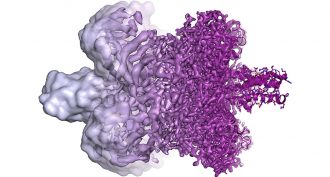 Chemistry
ChemistrySuper-chilled imaging technique brings its developers the Nobel Prize in chemistry
Three men who helped develop a super-high-resolution imaging technique for proteins, viruses and more received the 2017 Nobel Prize in chemistry.
By Carolyn Gramling and Laurel Hamers -
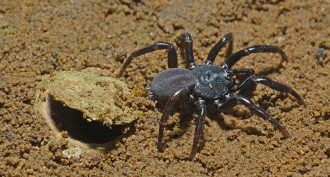 Animals
AnimalsTo become Australians, these spiders crossed an ocean
The ancestors of a species of trapdoor spider must have survived a journey from Africa, a new genetic analysis finds.
-
 Brain
BrainUnderstanding body clocks brings three a Nobel Prize
Three American men will share this year’s Nobel prize for physiology or medicine. The award recognizes their contributions to understanding the workings of the body’s biological clock.
By Tina Hesman Saey and Aimee Cunningham -
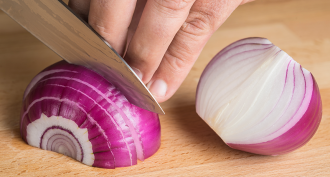 Chemistry
ChemistryWhy onions make us cry
Researchers add another piece to the molecular puzzle biochemists have tried to solve for decades — why onions can make our eyes tear up.
-
 Animals
AnimalsScientists Say: Dung
This word is used to refer to animal poop. You know, manure. Crap. Feces.
-
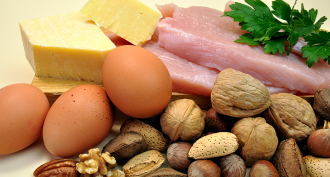 Life
LifeCool Jobs: Puzzling over proteins to study life and death
Scientists are using proteins to understand dinosaur family trees, to fight malnutrition with a peanut-butter mix in Africa and to make “Google maps” of human cells.
By Bryn Nelson -
 Genetics
GeneticsGenes may predict how well the flu vaccine will work in young people
The activity of nine genes predicted how well people 35 and under would respond to the flu vaccine.
-
 Oceans
OceansExpedition finds South Pacific plastic patch bigger than India
A giant, floating ‘garbage patch’ in the South Pacific off Chile’s coast is mostly tiny bits of plastic.
By Ilima Loomis -
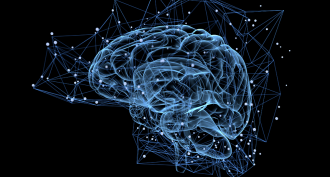 Tech
TechSpying on brains in action
New tools let scientists see inside the brain and nervous system as their research subjects move around.
-
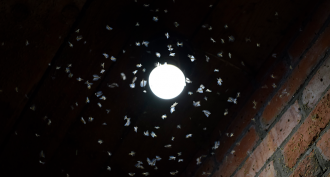 Environment
EnvironmentLight pollution can foil plant-insect hookups
An experiment in remote European meadows shows that light pollution at night can affect the pollination of flowers — even into sunlight hours.
By Susan Milius -
 Health & Medicine
Health & MedicineThe five-second rule: Designing an experiment
Is it true that food is still clean if it’s picked up off the floor before five seconds have passed? To find out, we designed an experiment to give us data.
-
 Health & Medicine
Health & MedicineThe five-second rule: Growing germs for science
Is it true that food dropped on the floor and picked up after five seconds is clean? To find out, we’re building an incubator and allowing any hitchhiking germs to grow.